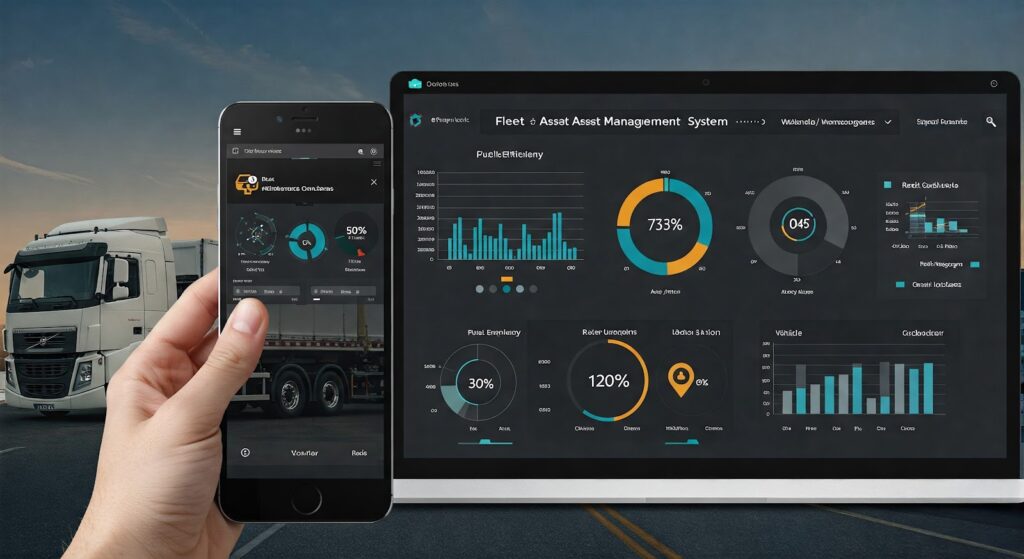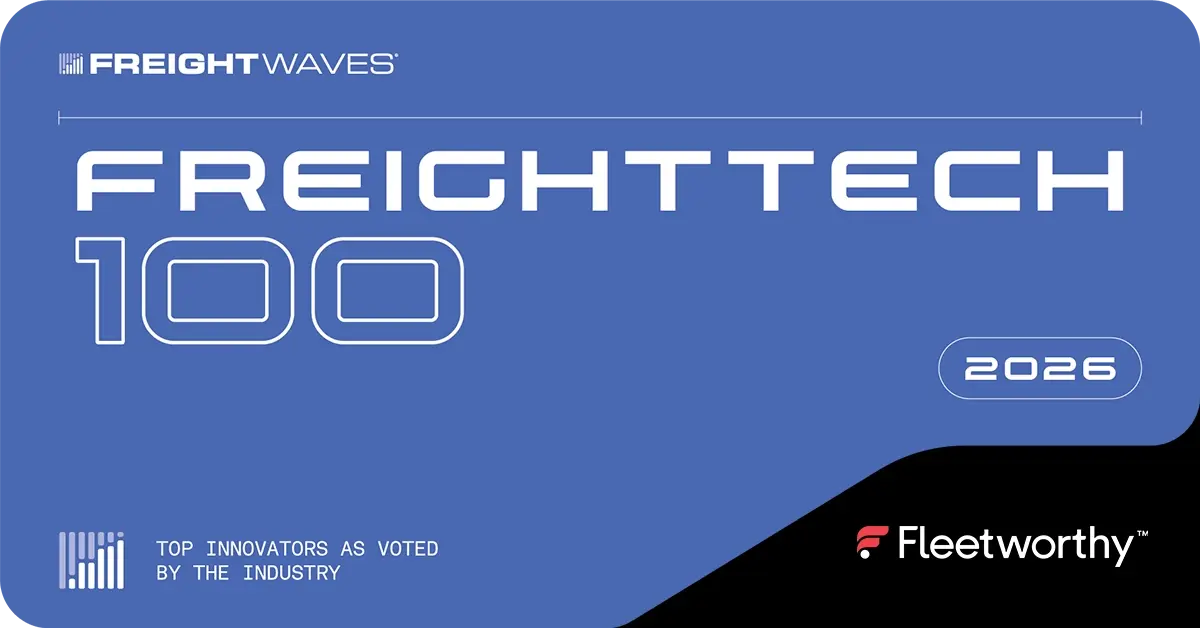Fleet asset management is a structured approach to overseeing and maintaining a company’s fleet of vehicles, ensuring each asset functions at its highest potential while staying compliant with industry regulations. Understanding the different phases of the asset lifecycle and implementing best practices in fleet management can help companies maximize their return on investment (ROI) and enhance overall business performance.
The Strategic Importance of Fleet Asset Management in Profitability
Fleet asset management is more than just vehicle tracking and maintenance—it is a profit-driving strategy that influences cost efficiency, productivity, and sustainability. Effective asset management directly impacts profitability by:
- Reducing costs: Optimized vehicle usage, lower fuel consumption, and efficient maintenance strategies keep expenses under control.
- Extending asset lifespans: Proper maintenance and predictive analytics help fleets avoid premature replacements.
- Enhancing safety and compliance: Ensuring vehicles are roadworthy reduces the risk of accidents, fines, and regulatory penalties.
- Improving resource allocation: Data-driven decision-making allows businesses to optimize fleet size and composition, reducing underutilized assets.
By adopting fleet management software, telematics, and data-driven insights, businesses can track fleet performance, predict maintenance needs, and make strategic decisions that drive long-term success.
Fleet asset management is a crucial aspect of any transportation-dependent business. Managing the entire lifecycle of fleet vehicles—from initial planning and acquisition to maintenance and decommissioning—ensures that assets are utilized effectively while remaining compliant and cost-efficient. Companies that invest in strategic asset management solutions can significantly enhance fleet performance, reduce costs, and improve overall profitability.
By implementing the right tools and best practices, organizations can turn fleet asset management into a competitive advantage, ensuring long-term sustainability and financial success.
The Impact of Robust Asset Management on Fleet Performance
A well-managed fleet is more than just a collection of vehicles—it is a strategic asset that supports business continuity and growth. Fleet asset management ensures that vehicles remain in optimal condition. Below are some of the most critical benefits of a comprehensive asset management approach:
1. Optimized Vehicle Utilization
Ensuring that vehicles are available when and where they are needed is crucial for minimizing disruptions. A robust asset management system helps:
- Maximize vehicle uptime by proactively managing maintenance and repairs.
- Prevent bottlenecks caused by unplanned breakdowns or unavailable vehicles.
- Improve fleet scheduling to align with demand, reducing idle time and unnecessary expenses.
2. Enhanced Safety and Reliability
Safety is a top priority in fleet operations, and asset management plays a key role in reducing risks. Proper maintenance:
- Lowers accident rates by ensuring vehicles meet safety standards.
- Reduces the risk of unexpected breakdowns, keeping drivers and cargo secure.
- Ensures compliance with DOT regulations, minimizing liabilities.
3. Data-Driven Decision Making
Modern asset management systems collect and analyze real-time vehicle data, leading to:
- Predictive maintenance, identifying issues before they cause downtime.
- Fuel consumption analysis, optimizing fuel efficiency and cost savings.
- Performance tracking, helping businesses make informed decisions based on data insights rather than guesswork.
4. Cost Efficiency and Expense Control
Fleet operations come with significant costs, but effective asset management helps control expenditures by:
- Reducing emergency repairs through proactive maintenance.
- Extending vehicle lifespan by ensuring proper usage and servicing.
- Minimizing fuel waste by optimizing routing and vehicle efficiency.
By prioritizing asset management, companies can ensure their fleets serve as efficient, cost-effective, and compliant tools that drive business success.
Benefits of Fleet and Asset Management Software Like Fleetworthy
The complexity of managing a fleet—tracking vehicle conditions, maintenance schedules, regulatory compliance, and real-time performance—demands a centralized, technology-driven solution. Fleet and asset management systems like Fleetworthy provide the tools necessary to streamline fleet operations.
1. Automated Compliance Tracking
Regulatory compliance is a critical component of fleet management. Failing to meet industry regulations can lead to fines and penalties. Systems like Fleetworthy offer:
- Automated tracking of safety inspections, licensing, and permits.
- Alerts for upcoming regulatory deadlines.
- Audit preparation tools to maintain a paper trail for compliance reporting.
2. Simplified Maintenance Scheduling
Preventive maintenance is key to avoiding unexpected breakdowns. Fleetworthy provides:
- Automated service reminders, ensuring vehicles receive timely inspections and repairs.
- Maintenance tracking logs that help managers analyze historical repair data.
- Cost-saving predictive maintenance, reducing unplanned expenses.
3. Insightful Data Reporting and Analytics
Data is a valuable resource in fleet management, and Fleetworthy provides:
- Detailed cost analysis for fuel, maintenance, and asset depreciation.
- Customizable dashboards for tracking fleet productivity.
- Compliance and safety reports to improve regulatory adherence.
Fleet asset management is not a luxury—it’s a necessity. Businesses that embrace technology-driven solutions position themselves for long-term success, sustainability, and profitability.
By investing in a powerful asset management system, companies can transform their fleets from operational necessities into strategic assets, gaining a competitive edge in the market.

Ensuring Compliance with Fleet Asset Management Systems
Fleet asset management is not only about optimizing vehicle performance and reducing costs—it is also crucial for maintaining compliance with industry regulations. To mitigate these risks, fleets must leverage advanced fleet and asset management technologies to streamline compliance efforts, ensure accurate reporting, and stay ahead of evolving regulations.
The Role of Fleet and Asset Management Technologies in Regulatory Compliance
With complex and ever-changing regulations governing the transportation industry, businesses need a structured compliance framework to ensure adherence. Fleet and asset management technologies serve as a powerful toolset, automating compliance processes and minimizing the burden of manual record-keeping. These systems help fleets meet requirements set by regulatory bodies such as the Federal Motor Carrier Safety Administration (FMCSA), Department of Transportation (DOT), and International Fuel Tax Agreement (IFTA).
1. Accurate Record-Keeping and Centralized Data Management
Fleet management software acts as a digital repository for all compliance-related documents, ensuring that fleet managers have quick and easy access to essential records, such as:
- Driver Qualification Files (DQFs) (licenses, medical certificates, training records)
- Vehicle Inspection Reports (DVIRs, annual inspections, maintenance logs)
- Fuel Tax and Mileage Reports (IFTA/IRP compliance)
- Accident and Safety Records
- Hours of Service (HOS) Logs
With automated data storage and retrieval, these systems help businesses prepare for audits, reduce paperwork, and avoid penalties due to lost or incomplete records.
2. Real-Time Monitoring for Compliance Oversight
Fleet management platforms provide real-time tracking of vehicle and driver behavior to prevent regulatory violations before they happen. Key compliance features include:
- GPS tracking to monitor vehicle location and ensure adherence to restricted zones or routes.
- Telematics alerts that notify fleet managers of unsafe driving behaviors (speeding, harsh braking, idling) that could impact compliance ratings.
- HOS compliance tracking to prevent drivers from exceeding legal operating hours.
By continuously monitoring fleet operations, businesses can proactively address potential compliance risks before they escalate into costly violations.
3. Automated Regulatory Updates for Seamless Compliance
Regulatory standards frequently evolve, requiring fleets to stay informed and adjust their policies accordingly. Fleet management systems provide:
- Automatic software updates to reflect the latest federal and state regulations.
- Built-in compliance reminders to ensure timely license renewals, vehicle inspections, and tax filings.
- Instant access to policy changes, reducing the likelihood of outdated or non-compliant practices.
With these automated updates, fleets can maintain continuous compliance without the need for manual tracking of industry changes.
The Business Benefits of Compliance Automation
Investing in fleet asset management and compliance solutions does more than just prevent fines—it delivers tangible business benefits, including:
- Reduced Administrative Burden – Automation eliminates manual record-keeping, saving time and resources.
- Lower Risk of Fines and Legal Penalties – Real-time alerts and tracking ensure fleets remain compliant.
- Improved Driver Safety and Performance – Monitoring tools help enforce safe driving habits.
- Stronger Reputation and Customer Trust – Compliance adherence builds credibility and avoids service disruptions.
By embracing these compliance-focused solutions, fleets can achieve operational excellence, protect their bottom line, and ensure long-term sustainability in the transportation industry.
Why Fleetworthy is the Ideal Solution for Fleet Asset Management
Managing a fleet is complex, but with Fleetworthy, you can transform compliance and asset management into a seamless, automated process. Our industry-leading platform goes beyond compliance, ensuring your fleet operates efficiently, safely, and profitably. From real-time compliance tracking and automated maintenance scheduling to data-driven insights that optimize fleet performance, Fleetworthy empowers businesses to stay ahead of regulations while maximizing ROI.
Don’t leave compliance and asset management to complicated spreadsheets—partner with Fleetworthy and drive your fleet toward long-term success. Contact us today to see how our powerful technology can help your business stay compliant, reduce costs, and enhance efficiency.




